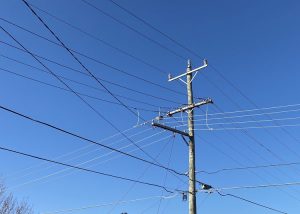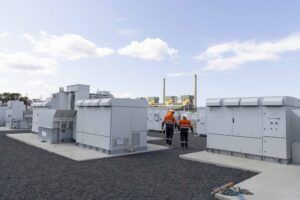Massachusetts-based liquid metal battery company Ambri has secured a further $US144 million in financing to help commercialise and grow its long-duration energy storage systems and build a domestic manufacturing facility.
The $US144 million ($AU196 million) financing round included Ambri’s largest shareholder, Bill Gates, and was led Reliance New Energy Solar, a subsidiary of Indian giant Reliance Industries Limited.
Also involved were American investment management firm Paulson & Co, and new investors including Fortistar, Goehring & Rozencwajg Associates, and Japan Energy Fund.
“This financing supports the commercial growth of our company and technology,” said Dan Leff, Ambri Executive Chairman.
“Further, these funds are instrumental to driving our efforts to scale the company’s operations and establish our manufacturing infrastructure to meet rapidly expanding customer demand.”
Ambri’s liquid metal battery is billed as a game-changing technology, comprised of a liquid calcium alloy anode, a molten salt electrolyte, and a cathode comprised of solid particles of antimony, all of which enables the use of low-cost materials and a relatively easier cell assembly process.
Available in a ready-to-install DC containerised system complete with shelves of cells, thermal management, weatherproof outer enclosure, and a battery management system, Ambri’s liquid metal battery form a MWh-scale system which is separately coupled to the grid using standard industrial DC-AC bi-directional inverters.
With a capacity of between 400kWh and 1,000kWh, up to 250kW, the batteries can provide storage lasting from 4 to 24 hours, and can cater to projects measuring in size from 10MWh to over 2GWh.
Ambri hopes that its new battery systems will break through the existing barriers inherent in current lithium-ion battery technologies – cost, longevity, and safety.
Specifically, Ambri claims that the calcium and antimony electrodes in its battery cells are less than one-third the cost of lithium, nickel, manganese, and cobalt – common materials in modern-day lithium-ion batteries.
Over the long term, as well, Ambri batteries also reduce capital and running costs, as they do not need cooling, fire suppression, or module and rack-based battery management system equipment – as does lithium-ion systems.
Further, with a promised 20-year lifespan, Ambri’s batteries suffer very little degradation over the length of operation.
All in all, Ambri-based systems are expected to cost 30% to 50% below equivalent lithium-ion systems from 2022 to 2030.
Ambri will use the new injection of funds to design and construct high-volume manufacturing facilities in the United States and globally. As part of the transaction, Reliance New Energy Solar will step onboard as a strategic partner to develop and manufacture Ambri’s batteries in India.
“Reliance Industries sees this strategic partnership with Ambri as an important step in its journey of achieving its decarbonization goals,” said Mukesh Ambani, Chairman and Managing Director of Reliance Industries Ltd.
“Our investment in Ambri is part of our broader plan to develop the Dhirubhai Ambani Green Energy Giga Complex, which will be amongst the largest integrated renewable energy manufacturing facilities in the world and the epicenter of India’s Green Economy movement.”






